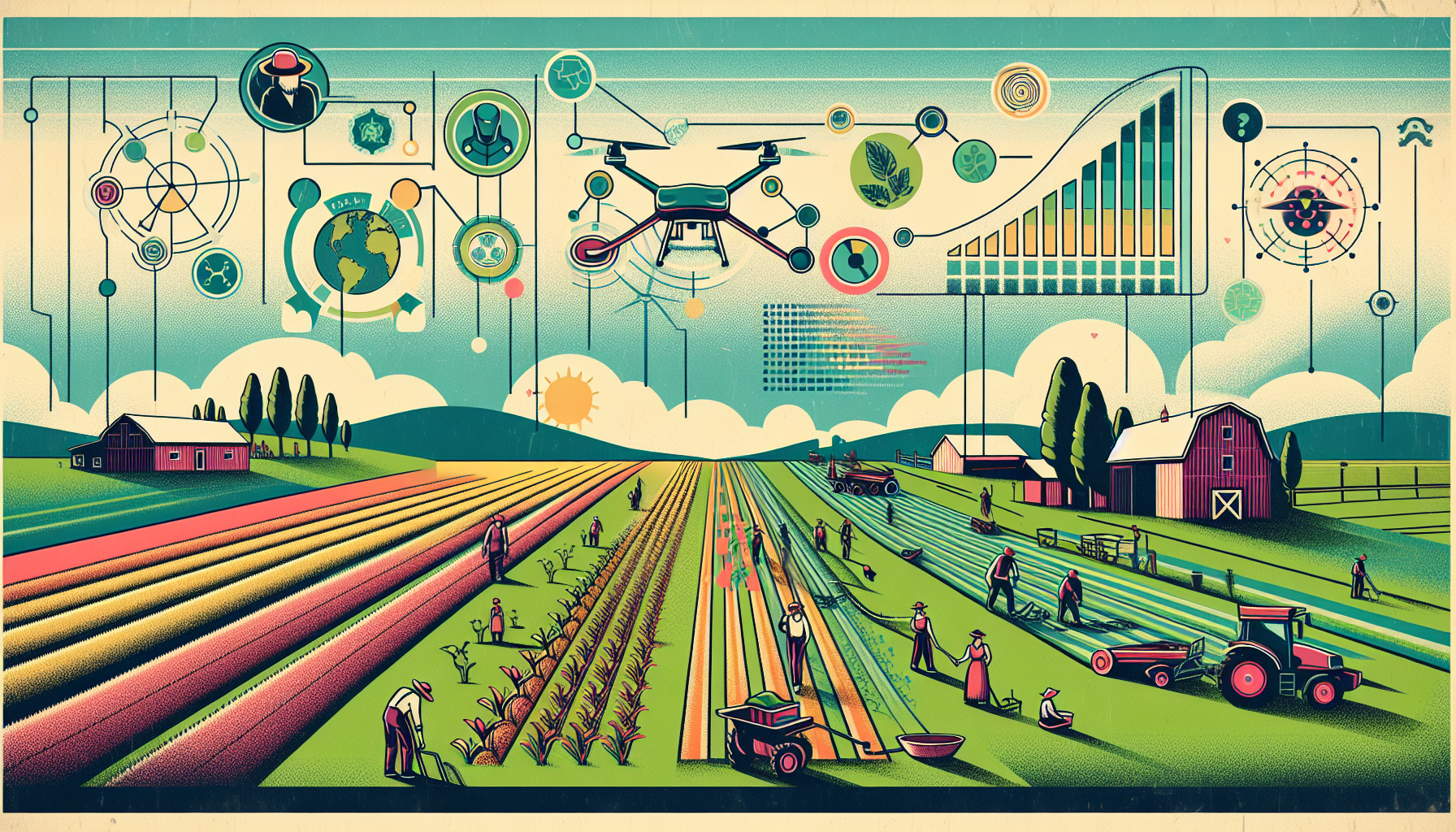The world of agriculture is undergoing a remarkable transformation, thanks to the power of Artificial Intelligence (AI). By weaving AI technology into farming, we are not only boosting efficiency and productivity but also empowering farmers to tackle the challenges posed by climate change.
Precision Farming
At the heart of AI’s impact on agriculture is precision farming. Imagine a system where AI algorithms sift through data from sensors, historical records, and soil samples. The result? Farmers can now tailor nutrient levels and fertilization schedules to suit specific needs. This precision ensures crops get just the right amount of care at the perfect time, fostering optimal growth and reducing waste.
Moreover, satellite imagery and AI-enhanced drones have become indispensable tools. They provide real-time insights into the health of crops, spotting early signs of stress, disease, or pest threats. This means farmers can respond quickly, safeguarding crops and maximizing yields. AI-driven irrigation is another marvel, adjusting water schedules based on soil moisture, weather forecasts, and plant needs, thus conserving water without compromising on crop hydration.
Predictive Analytics
AI models are now accurate weather prophets, crucial for planning key agricultural activities like planting and harvesting. By analyzing historical data, atmospheric conditions, and climate trends, these models arm farmers with the insights needed to allocate resources effectively and plan marketing strategies wisely. For instance, AI can predict crop output by considering soil quality, weather patterns, and past yields, which helps farmers fine-tune their operations for better productivity and greater profits.
Weather Forecasting and Climate Adaptation
As climate change intensifies, agriculture faces new challenges, particularly extreme weather events. Here, AI-powered solutions provide a lifeline. Leveraging machine learning, these solutions integrate historical weather data and climate models with on-farm data to deliver actionable insights. An example is an AI tool created by a research institute in collaboration with Omdena, which advises farmers on optimal planting dates, crop varieties, and irrigation strategies. Remarkably, such innovations have led to a 15% rise in crop yields and a 20% cut in losses due to extreme weather.
Pioneering companies like Climavision lead in advanced forecasting, using the Horizon AI Global weather model to process vast amounts of observational data. This results in highly accurate forecasts, enabling farmers to mitigate risks, improve crop rotations, and adjust strategies to align with shifting climate trends.
Sustainability and Resource Management
AI champions sustainable farming by optimizing the use of resources like water, fertilizers, and pesticides. By applying these inputs judiciously, AI systems minimize waste and environmental impact, ensuring crops are nourished appropriately. This also aids in preserving soil health and water resources, essential for maintaining productive farmland for future generations.
Automation and Livestock Management
Beyond crops, AI enhances livestock management. Automated systems equipped with AI and computer vision can detect early signs of disease or nutrient deficiencies in animals, improving their health and productivity. AI-driven agricultural robots and tractors streamline field operations, reducing the need for manual labor and minimizing soil compaction. This translates to cost savings and increased operational efficiency.
Benefits and Impact
AI in agriculture offers myriad benefits, including:
- Improved Crop Yields: AI optimizes growing conditions, leading to higher productivity.
- Reduced Crop Losses: AI provides early warnings, lowering the risk of crop damage from adverse weather.
- Increased Farm Incomes: Enhanced yields and reduced losses contribute to greater farm income.
- Enhanced Climate Resilience: AI equips farmers to adapt to changing weather patterns, promoting sustainable practices and supporting global food security.
In essence, AI is revolutionizing agriculture by equipping farmers with data-driven insights and tools. From the precise management of inputs to predictive analytics and climate adaptation, AI enriches the efficiency, productivity, and sustainability of farming practices. As AI technology advances, its role in securing global food supplies and bolstering the resiliency of farming communities is set to expand even further.

Leave a Reply